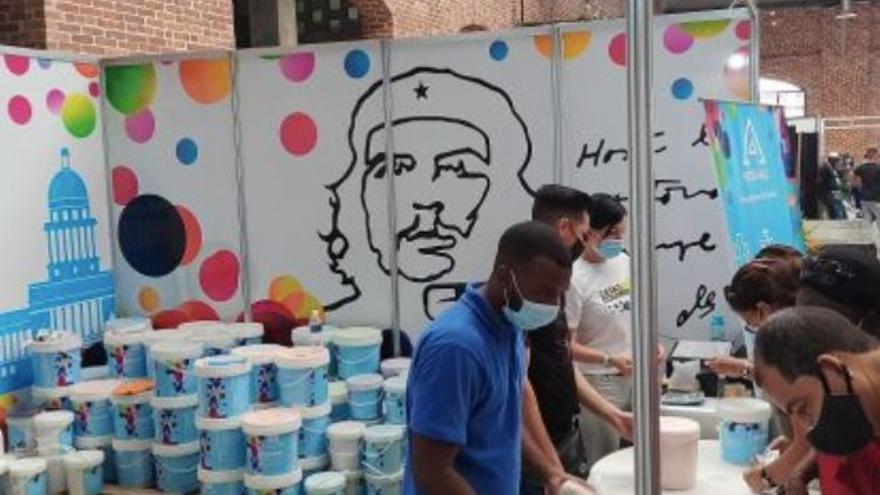
![]() 14ymedio, Havana, 21 September 2023 — The Christian Democratic Party of Cuba (PDC, for its initials in Spanish) warned the Administration of U.S. President Joe Biden on Wednesday that a lifting of economic restrictions on Cuban micro, small and medium-sized enterprises (MSMEs) will only serve to “give oxygen” to the Island’s regime. The measures, which will soon be made official according to several U.S. media, will benefit those who “have increased their fortune with the approval of the dictatorship,” the organization insists in a statement.
14ymedio, Havana, 21 September 2023 — The Christian Democratic Party of Cuba (PDC, for its initials in Spanish) warned the Administration of U.S. President Joe Biden on Wednesday that a lifting of economic restrictions on Cuban micro, small and medium-sized enterprises (MSMEs) will only serve to “give oxygen” to the Island’s regime. The measures, which will soon be made official according to several U.S. media, will benefit those who “have increased their fortune with the approval of the dictatorship,” the organization insists in a statement.
The document, signed by the PDC’s Secretariat of Economic Affairs, admits that private business development is one of the ways to get Cuba out of poverty and resolve the acute structural crisis it is facing. However, he emphasizes, the “flexibility” that the United States will allegedly implement – which would allow, among other things, Cuban businessmen to open bank accounts in that country – will not achieve its goal. The State will closely monitor each step of the process and prevent the benefits from reaching their true recipients, he says.
Opponents are clear about the impossibility of a “radical economic change,” since the regime has demonstrated “for decades” that it opposes the growth of the private sector.
Washington is not going in the “right direction” in its economic strategies with Havana, says the PDC. “Both the credits themselves and the possible opening of bank accounts in the United States are limited and would reach only a select group of people close to the layers of power,” they state.
The measure “arrives late,” because many Cuban businessmen have looked for a way to open accounts abroad
In addition, the measure “arrives late,” because many Cuban businessmen have looked for a way to open accounts abroad, which they manage directly or through a front man, to dodge the controls in Havana. However, they denounce, the owners of the current MSMEs are, for the most part, “’reliable’ people or close to the leaders and relatives of the Castro leadership.”
The model – as other organizations have also argued – is Russia. “The greatest threat that can exist for the sake of a democratic transition in Cuba is to apply the Russian recipe once again and move from a failed state to a patriarchal regime, where the leadership continues to benefit economically, take the repression to another level for economic improvement and also wash their hands of it in the United Nations and before the Democrats in the United States, who continue to make them flexible and keep them in power indefinitely,” the statement summarizes.
In this sense, the Christian Democrats define the current hierarchy that holds the reins of power on the Island: at the head, an 82-year-old Raúl Castro, who continues to rule over a group of generals and other high-ranking soldiers – his confidence men – followed by a network that ranges from Gaesa, the economic arm of the Armed Forces, to the business system and the Communist Party. In these groups, not exempt from rivalries and contradictions, are also the owners of the MSMEs, they point out.
A U.S. bank credit or an account opened in that country would belong to the “mass of front men and alleged businessmen” close to the regime’s upper elite, in addition to allowing them to “whitewash their behavior” before the world.
Another worrying factor of the “flexibilization” of the United States is that the Havana regime receives other signs of “validation” from the international community
Another worrying factor of the “flexibilization” of the United States is that the Havana regime receives other signs of “validation” from the international community. Hence, the Christian Democrats demand that the United Nations funds for Cuba “be made available for investments in the real economy, to motivate food production and stimulate labor productivity.”
Finally, the declaration suggests steps to prevent the country from continuing to move towards “authorized dollarization,” where the only beneficiaries are businessmen close to the State. First of all, it calls for “economic and political freedom” that can only be guaranteed by the rule of law, from which “strong institutions” and “a free market spirit” are derived.
It also advises working on the “consolidation of an adequate business system,” which promotes agriculture and industrialization. It is also necessary to suppress the “dependence” of Cubans on the State and the “minimum effort,” two characteristics that Christian Democrats define as the “great heritage of the regime.” In short, any economic improvement must bring with it a dismantling of the “anthropological damage” of which Cubans have been victims since 1959.
Translated by Regina Anavy
____________
COLLABORATE WITH OUR WORK: The 14ymedio team is committed to practicing serious journalism that reflects Cuba’s reality in all its depth. Thank you for joining us on this long journey. We invite you to continue supporting us by becoming a member of 14ymedio now. Together we can continue transforming journalism in Cuba.
